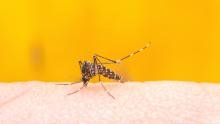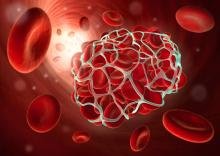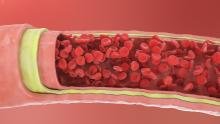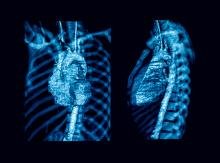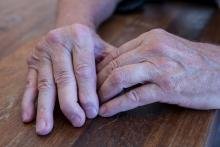Currently, vaccination against COVID-19 is successfully ongoing in many countries, with the application of shots produced by various manufacturers in the United States, Europe and Asia. In the first part of this special article, published last week, we addressed the safety and effectiveness of currently available vaccines. We also presented a summary of the scientific achievements in terms of immunization against various diseases (1). In this second installment we will address the available research on the impact of vaccination in patients with rheumatologic diseases.
To start, let’s keep in mind that as of yet, there is no systematic specific research on the possible side effects of COVID-19 vaccines in patients with rheumatic diseases. We still have very limited information and it mainly concerns recommendations made by rheumatology associations, based on consultation between rheumatologists and their patients. At this point, the key factor is the joint decision making process between patients and rheumatologists about all COVID-19 immunization issues. That is, informed patients and physicians providing all available information and evidence so that together, they can reach a consensus.
Although no commonly accepted recommendations have been presented as of today, some general guidelines developed by several national rheumatology societies have been published in several countries in America. One of our goals in this paper is reviewing the most relevant assumptions among rheumatology societies regarding the immunization of patients with rheumatic diseases. The final goal being that each case can be analyzed under a specific angle, considering those recommendations. This information will be constantly updated as new evidence, shedding light on the side effects of vaccines on rheumatoid patients, becomes available.
The American College of Rheumatology (2) has established several recommendations regarding COVID-19 threat for people underlying rheumatic diseases:
- All health professionals (rheumatologists) should establish an open dialogue with their patients so as to determine, together, which vaccine suits best the patient according to each one’s particular conditions.
- Acknowledge the heterogeneity of the underlying disease as well as all treatment-related factors. Also, take into consideration aspects such as patients’ age and sex as these can potentially generate a higher risk of hospitalization for COVID-19.
- Consider that immunization of these patients is a priority compared to same age and sex people with no rheumatic diseases.
- Acknowledge that rheumatic patients’ response to vaccines is likely to be lower in prevention and time when compared to the general population.
- Inform that, although there might be theoretical risks of increased rheumatic flare or worsening, benefits of being vaccinated outweigh those risks by far.
"Although population-based studies offer limited data as of today, it appears that patients with autoimmune and inflammatory diseases are at higher risk of developing COVID-19 and being hospitalized, compared with the general population. They also seem to have worse outcomes associated with infection," said Jeffrey Curtis, M.D., chair of the ACR COVID-19 Vaccine Clinical Guidance Working Group. "Based on this concern, the benefit of COVID-19 vaccine outweighs any small, potential risk of new autoimmune reactions or disease flares after vaccination" (2).
On the other hand, the European Alliance for Rheumatism (EULAR) has stated that all COVID-19 vaccines currently under development are non-live ones, meaning that they cannot transmit the viral disease to patients, nor can they transfer the infection or change any genetic information.
“These vaccines can be used safely in patients with RMDs as well as in patients receiving drugs that influence the immune system. Other non-live vaccines have been proven to work for immune-suppressed patients. To say it more strongly, there is no reason to withhold these vaccines from patients with RMDs and patients treated with drugs that influence the immune system.” (3)
The U.S. Centers for Disease Control and Prevention (CDC) warns that people with a weakened immune system should be aware of the potential lower immune response to the vaccine. They clarify that these patients must be informed that safety data for COVID-19 immunization among this population group is still limited (4).
An ad hoc committee formed by immunologists and physicians from the Colombian Association of Rheumatology (Asoreuma) and the Colombian Association of Immunology, concluded that as with other vaccines, the activity of the disease, the immunosuppressive treatment scheme and the comorbidities must be taken into consideration. "Our belief and suggestion is to vaccinate when the baseline disease is under control. A history of anaphylaxis or severe allergic reactions should be considered as well" they say. "Patients and their families should consult their physician prior to getting the vaccine in order to define whether the patient can get the shot or should wait due to the treatment or the state of their disease," states the Colombian Association of Rheumatology (5).
In addition, the Chilean Society of Rheumatology states that both vaccines currently available in Chile, Pfizer and Sinovac, have no contraindications for patients suffering from autoimmune diseases or from any deficiency in their immune system, whether congenital or drugs related (6). They maintain that, at the time being, no data available supports the suspension of rheumatologically therapy prior to vaccination, and therefore, their recommendation is for people to get the vaccine. They also point out that patients undergoing biological therapy can also be vaccinated.
The Uruguayan Society of Rheumatology (SUR) emphasizes that currently available COVID-19 vaccines do not contain live virus; therefore, experts recommend their administration in patients with inflammatory and autoimmune rheumatic diseases. However, they point out that the decision to vaccinate should be made between the patient and their treating physician (7).
Some Rheumatology Societies consider that it is too early to draw conclusions and publish definitive papers on vaccination in rheumatoid patients. For instance, the Argentine Society of Rheumatology (SAR) states that "to date, there is too little specific information on patients under immunosuppressive treatment or with rheumatologic diseases. However, and knowing that vaccination is a pillar in the prevention of infectious diseases in patients with rheumatologic diseases, we are waiting for any update with reliable data that will provide us with the support to generate an accurate and safe recommendation for our patients" (8).
Last but not least, the Paraguayan Society of Rheumatology reminds us that the recommendations are not intended to replace the judgment of each patient physician (9).
WHEN SHOULD VACCINES BE ADMINISTERED IN RHEUMATOID PATIENTS?
"Vaccinations should preferably be given when the disease is in a quiet phase; when possible, it is also preferred to vaccinate before planned immunosuppression. But, of course, this is not always possible. A vaccine is most effective when the amount of or level of immunosuppression is low. However, the risk of a flare of the disease is real and, therefore, decreasing your medication is not recommended," publishes EULAR in a communication published to date based on known evidence (3).
Degree of immunosuppression
The Endemic and Infectious Diseases Commission from the Brazilian Society of Rheumatology, published their guidelines for rheumatologists and patients. To date, more than 6 million people have been vaccinated with Sinovac in Brazil.
Their guidelines clearly define the population to whom the recommendations are addressed, i.e., those who have autoimmune rheumatic diseases, such as rheumatoid arthritis, spondyloarthritis, psoriatic arthritis, systemic lupus erythematosus, scleroderma, primary Sjogren’s syndrome, inflammatory myopathies, vasculitis. It also sets a ranking of immunosuppression in patients. (Schedule 1) (10).
Schedule 1. Immunosuppression ranking in patients with rheumatic diseases based on their treatment
|
|
|
|
|
|
|
The American College of Rheumatology (ACR) also stresses the importance of discussing procedures to patients as part of the shared decision-making process, "so as to also take into consideration the underlying health conditions, level of disease activity, current treatments, risk of exposure to SARS-CoV-2 and geography" (2). The ACR also include a schedule with suggested drugs for patients with rheumatic diseases.
Schedule 2 shows the drugs used by rheumatic patients and the time considerations related to COVID-19 vaccination.
Schedule 2. Time considerations for immunosuppressive drugs
|
Immunosuppressive drugs |
Time considerations regarding immunomodulators and COVID-19 vaccines |
|
Hydroxychloroquine; immunoglobulins; sulfasalazine; leflunomide; mycophenolate; azathioprine; cyclophosphamide (oral formulation); anti-TNFs; IL-6R; IL-1R; il-17; IL 12/23; IL23; belimumab; corticoids (mainly prednisone equivalents <20mg/24h) |
No modifications to either immunomodulatory therapy or vaccination timing |
|
Methotrexate; JAK inhibitors |
Hold 1 week after each vaccine dose, for those with well controlled disease |
|
Abatacept SQ |
Hold SQ abatacept both one week prior to and one week after the first COVID-19 vaccine dose (only); no interruption around the second vaccine dose |
|
Abatacept IV |
Time vaccine administration so that the first vaccination occurs four weeks after abatacept infusion (i.e., the entire dosing interval), and postpone the subsequent abatacept infusion by one week (i.e., a 5-week gap in total); no medication adjustment for the second vaccine dose. |
|
Cyclophosphamide IV |
Time cyclophosphamide administration so that it will occur approximately 1 week after each vaccine dose, when feasible. |
|
Rituximab |
Schedule vaccination so that the vaccine series is initiated approximately 4 weeks prior to next scheduled rituximab cycle; delay rituximab 2-4 weeks after 2nd vaccine dose, if disease activity allows |
Therefore, a road map must be established, an open dialogue between physician and patient for truthful and up to date information on each one’s current situation. This suggestion is made considering that, to date, all research analyses and papers from rheumatology societies recommend COVID-19 vaccination in rheumatoid patients.
Shared decision making
Current evidence indicates that RMD patients have a higher risk of COVID -19 infection, without this meaning a more severe one nor a higher risk of mortality (11,12,13).
A first analysis shows that RMD patients in Latin America who get COVID-19 have a similar mortality rate to those same patients in the rest of the world, despite requiring more ventilator support (11). Data from Brazil reveals that immunosuppression with steroids and cyclophosphamide is associated with worse outcomes in patients over 50 and that treatment with anti-TNF biologic agents could offer protection (12).
A recent meta-analysis seems to confirm that, in general, rheumatic patients have an increased risk of getting the disease due to the use of high doses of corticoids. It also confirms that patients under medication seem to have a lower risk of severe COVID-19 infection. (13).
Regarding the response to COVID-19 immunization, preliminary reports show that patients generate antibodies after getting the vaccine. A recent analysis published in Annals of the Rheumatic Diseases, states that "SARS-CoV-2 mRNA vaccines lead to antibody development in immunosuppressed patients without considerable side effects or induction of disease flares." Adding that despite the small size of this population, "we were able to prove the efficacy and safety of mRNA vaccines" (14). These results claim that SARS-CoV-2 antibodies as well as their neutralizing activity could be detected in all participants. "Side effects were comparable in both groups. No serious adverse effects were observed and no patient experienced a disease flare (14).
The possibility of a relapse is considered unlikely. "Preliminary results from local research indicate that a relapse is unlikely to occur after getting a COVID-19 vaccine. Additionally, previous studies showed that compared to patients who got a placebo, those who received a COVID-19 mRNA vaccine didn’t show any consistent symptoms of autoimmune conditions or inflammatory disorders." (14).
According to available evidence, COVID-19 vaccination is recommended in any case, except specific medical objection. Benefits outweigh the risks by far (1) and this is true for RMD patients. Also, in addition to effectiveness, prevention from severe forms of the disease, including hospital admissions and severe cases that can lead to death, are also significant benefits (15, 16) as shown in Schedule 3.
Schedule 3. Current vaccines: effectiveness, prevention of hospital admissions and severe COVID-19 cases
|
Vaccine |
Technology platform |
Dose |
Prevention of COVID-19 hospitalization and death |
Prevention of severe illness due to COVID-19 |
Effectiveness |
|
Moderna |
ARNm |
2 |
97 % |
97 % |
94,1 % |
|
Pfizer |
ARNm |
2 |
100 % |
100 % |
95 % |
|
Janssen |
Viral vectors |
1 |
100 % |
85 % |
72 % USA; 66 % LatAm; 57 % South Africa (95 % B1.351) |
|
AstraZeneca |
Viral vectors |
2 |
100 % |
100 % |
70 % in general; 76 % 1 dose. |
|
Novavax |
Proteins |
2 |
100 % |
100 % |
89,3 % UK; 60% South Africa (94 % B.1.351). |
|
Sputnik |
Viral vectors |
2 |
100 % |
100 % |
91,6 % |
|
Sinovac |
Live attenuated |
2 |
100 % |
83,70 % |
50,65 % |
Source: Data from references 15,16 and 17.
CONCLUSIONS
In the current context, with still very little data available, it makes sense to evaluate whether or not getting a COVID-19 vaccine. Therefore, it is important for the treating physician to carefully review the following criteria:
- Patients immunosuppression level
- The treatment regimen
- The activity of the disease
- Existing comorbidities
- History of anaphylaxis or allergic reactions
- The availability and type of vaccines in the region
Only based on the above, a joint decision between physicians and patients can be made about COVID-19 vaccination.
Let’s keep in mind that until further information on COVID-19 vaccines is available, in real-life, people who choose to get the vaccine should still follow all proven health measures:
- Wearing a face mask
- Practice social or physical distance of at least 6 feet from other people
- Avoid crowded places
- Wash your hands often with soap and water
- Isolate in case of symptoms or contact with someone who has been COVID-19 diagnosed
* The authors would like to thank PANLAR Executive Committee for kindly reviewing this article.
RECOMMENDED SOURCES
For further information on COVID-19 vaccines, please visit relevant sources such as but not limited to the following ones:
- OMS: https://www.who.int/emergencies/diseases/novel-coronavirus-2019/covid-19-vaccines
- OPS: https://www.paho.org/es/vacunas-contra-covid-19
- CDC: https://espanol.cdc.gov/coronavirus/2019-nCoV/index.html
- COVID-19 vaccines tracking platform: https://www.covid-19vaccinetracker.org/
- FDA: https://www.fda.gov/about-fda/fda-en-espanol/enfermedad-del-coronavirus-covid-19
REFERENCES
- Fajardo E, Caballero-Uribe Carlo V. Vacunación y enfermedades reumáticas. Una decisión compartida. Parte 1. Seguridad y eficacia. Global Rheumatology DOI: https://doi.org/10.46856/grp.26.e076
- Curtis JR, Johnson SR, Anthony DD, Arasaratnam RJ, Baden LR, Bass AR, Calabrese C, Gravallese EM, Harpaz R, Kroger A, Sadun RE, Turner AS, Anderson Williams E, Mikuls TR. American College of Rheumatology Guidance for COVID-19 Vaccination in Patients with Rheumatic and Musculoskeletal Diseases - Version 1. Arthritis Rheumatol. 2021 Mar 17. DOI: 10.1002/art.41734. Epub ahead of print. PMID: 33728796.
- EULAR View point on SARS-CoV-2 Vaccination in Patients with RMDs. European Alliance of Associations for Rheumatology. 2021. Disponible en: https://www.eular.org/eular_sars_cov_2_vaccination_rmd_patients.cfm
- CDC Vaccine Considerations for People with Underlying Medical Conditions Disponible en https://www.cdc.gov/coronavirus/2019-ncov/vaccines/recommendations/underlying-conditions.html Updated Mar. 12, 2021
- Recomendaciones sobre la vacunación contra COVID-19 en pacientes con enfermedades autoinmunes. Asociación Colombiana de Reumatología. 2021. disponible en: https://asoreuma.org/wp-content/uploads/2021/02/RECOMENDACIONES-SOBRE-LA-VACUNACI%C3%93N-CONTRA-COVID-19.pdf
- Vacunación COVID-19: Dudas frecuentes. Sociedad Chilena de Reumatología 2021. Disponible en: http://www.sochire.cl/ficha.php?id=435
- Guía sobre vacunación contra el COVID-19 y enfermedades reumáticas. Sociedad Uruguaya de Reumatología. 2021. Disponible en: https://www.reumatologia.uy/post/gu%C3%ADa-sobre-vacunaci%C3%B3n-contra-el-covid-19-y-enfermedades-reum%C3%A1ticas



